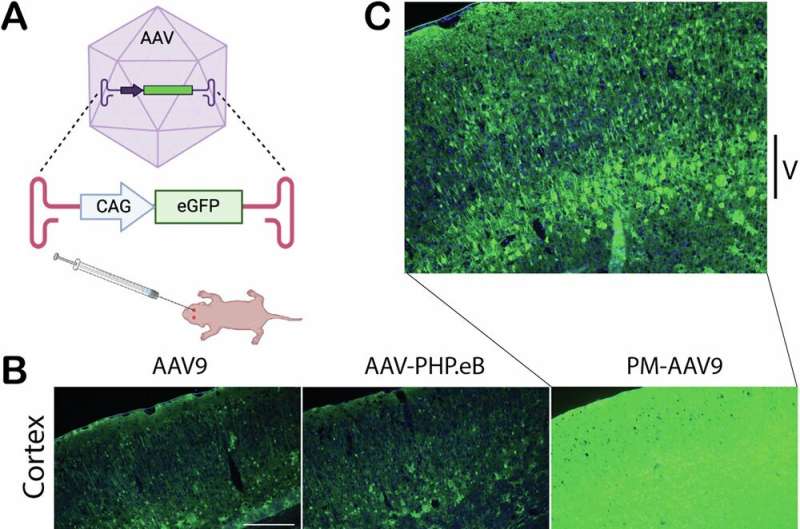“Silencing” a gene associated with regulating TDP-43, the protein that accumulates in the brain and causes ALS, with a technique called RNA interference (RNAi) allowed mice to survive an average of 54% longer. Subjects also experienced improvements in strength and reduced inflammation in the brain and spinal cord, according to research from the Perelman School of Medicine at the University of Pennsylvania and Children’s Hospital of Philadelphia, published today in Nature Communications.
“There are currently no treatments to slow the progression in people with ALS that have no family history or other risk factors. While we are not yet ready to treat humans with this therapy, these preclinical results are a very encouraging step,” said first author Defne Amado, Ph.D., an assistant professor of Neurology at the University of Pennsylvania’s Perelman School of Medicine. “Our finding also shines a light on the underlying biology of ALS, which will inform future research of therapies that treat the causes of the disease, not just symptoms.”

